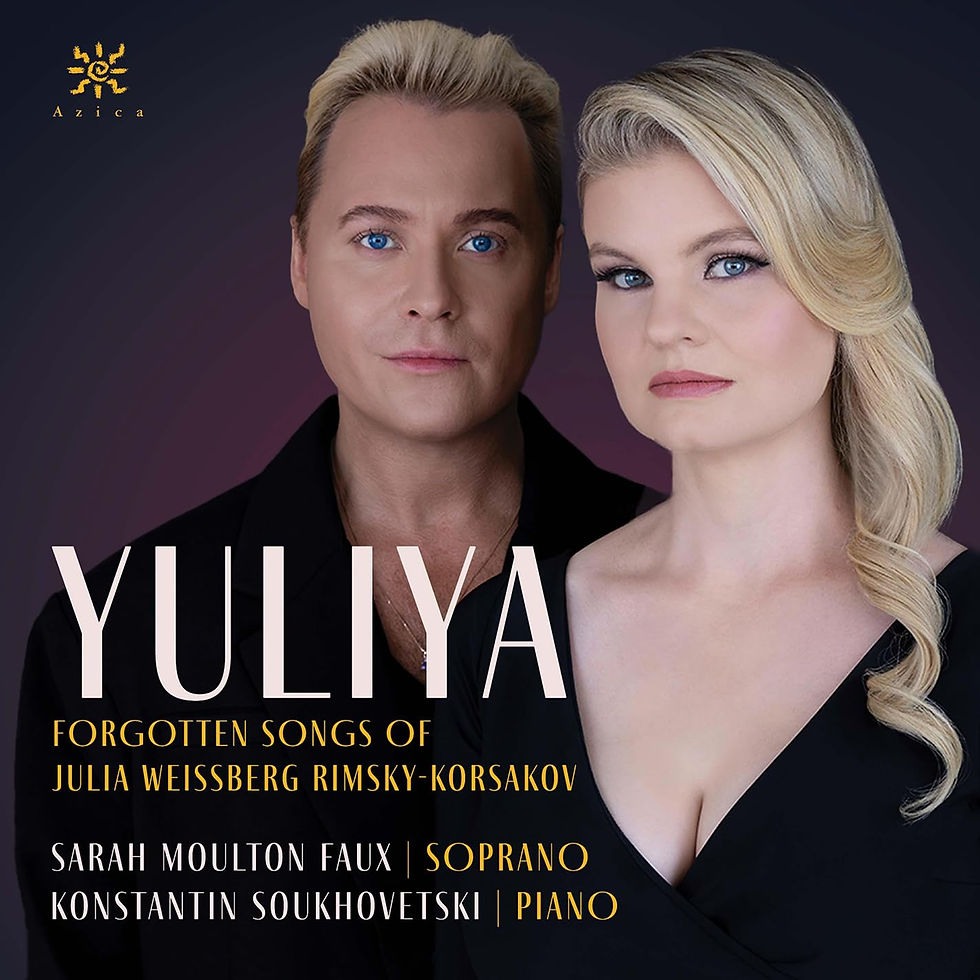The Brandenburg Duets
- May 23, 2018
- 3 min read
Updated: Jun 10, 2020

“When I perform a composition, the orchestral aspect is always what inspires me most,” she says. And playing four-hand at the piano, in a partnership feels like it doubles the inspiration.”
photo credit: ©Masataka Suemitsu Eleonor Bindman and Jenny Lin
In 2014, Eleonor Bindman was scouting materials for a four-hand piano duet she was gearing up to perform as part of a Bach concert series at the Old Stone House in Brooklyn. She was most interested in the Brandenburg Concertos, but the pianist and composer/arranger, an avid Bach player was not satisfied with what she found: the only prominent existing transcription of the collection for two pianos, by Max Reger. Inspired, Bindman began her examination, rearranging the first concerto’s transcription – but that quickly left her wanting to conquer the whole project. The result is a monumental achievement that conveys the orchestral density and unique character of each of the original works in a modern arrangement – The Brandenburg Duets.
Bach’s original Brandenburg Concertos, composed over several years for various solo instrument groupings, and was originally presented to the Margrave of Brandenburg in 1721. Max Reger’s 1905/6 transcription for two pianos was interesting, according to Bindman, but lacked in structural balance for the two performers and authoritative answers to some of the individual nuances of each of the original concerto compositions.
“Attempting to play the Reger version, resulted in the struggle of one performer to penetrate the densely arranged material of tangled treble notes, while the bass player plodded through an uneventful path,” Bindman explains. She deemed an equal partnership in a piano-duet performance necessary, and to achieve that, embellishing the existing manuscript was not enough; Bindman was looking to achieve a complete overhaul with a fresh perspective.
“Doubling the cello/base part in octaves, as Reger did, made no sense because it kept both hands of the Secondo occupied and resulted in excessively bottom-heavy sonorities. Likewise, throwing all of the treble parts together in the Primo – violin, violas, oboes solo French horns, flutes or trumpet plus the harpsichord –rendered the part unplayable at any decent tempo and hid the counterpoint in clusters of chords,” she says.

The translation of a concerto score for two pianists always bears the complexity of rivalry, of two instruments of the same sonority. It is much less of an intricate task to distinguish differing instruments. So to introduce a more variant sound production within a two-piano version, Bindman wrote differing expressive lines for both players. Particular modifications of the two- piano repertoire, like crossing hands, makes for an interesting audible vitality of blending and differentiating voices, while using the modern piano’s full range of a pianistic orchestration. In order to achieve a full and interesting sounding score, Bindman did not hesitate to lose some of the original score’s rudiments.
She also decided to modify certain sequences, based on their key settings and harmonic ranges, in order to enhance the overall listening experience. The result adds greatly to the two-piano repertoire, which thrives as a four-hand performance –no orchestra necessary.
Even before this Bach transcription, Bindman had always felt drawn to making repertoire written for other instruments, her own as a pianist and in particular for piano duo. Her debut recording of Three Works by Modest Mussorgsky, includes her transcription of his A night On Bald Mountain. This arrangement as well as some original piano works for children in a collective titled: An American Calendar has been published by Carl Fisher. Some of her existing transcriptions are not published as yet like that of a waltz, from Tchaikovsky’s opera Eugene Onegin.

Bindman shares a long professional history with Jenny Lin, her duo partner on the recording. They had met at the Jose Iturbi International Piano Competition, but more importantly were part of the same musical social circles in New York City. Lin, who has made a name for herself as a major voice in the contemporary scene was excited about the project from the get go:” Yes it’s true I am playing a lot of contemporary repertoire, but also like to mix and match old and new, experimenting with some classical in conjunction with contemporary works, and who says no to Bach?” she volunteers. Lin did not previously play four hands though; the Brandenburg Duets established her fist professional project and recording as a piano duet. “It’s a challenge,” she admits, “you have to learn another person’s habits, but we succeeded beautifully and that’s because Eleonor had such a very clear idea of what she wanted to achieve,” she explains.




Comments